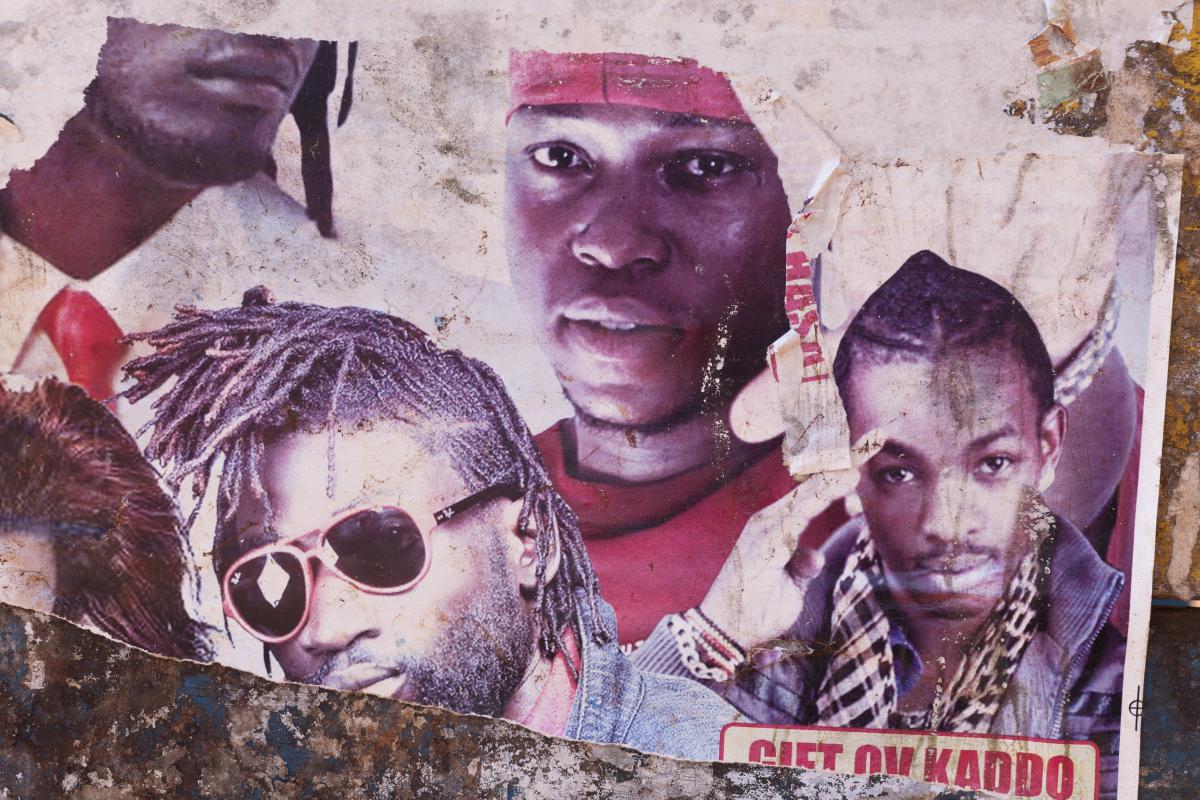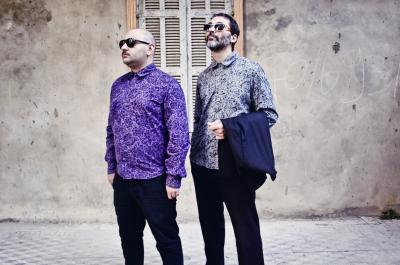The same seems to be the case for pop music. Yassin and an increasing number of subcultural musicians fall for the sha’bi street pop of Hakim, the crazy renderings of Sha‘ban ‘Abd al-Rahim, or the virtuosic keyboard versions by Islam Chipsy. They tend to ignore the clean pan-Arabic pop sound that is perfectly produced, financed and promoted by Saudi-Arabian satellite TV empires. They prefer Arabic pop of the 1980s that was «produced quickly and comparatively inexpensively through studio overdubbing and extensive cutting-and-pasting,» as Michael Frishkopf writes in his edited volume Music and Media in the Arab World (2010). The pop sound of that period integrates both the instruments, rhythms and sounds of 1970s psychedelic rock; and the oriental sound of belly dance music of the 1950s and 1960s. «The nightclub sound was a musical hybrid generated by the creative invention and innovation of second-generation and post-World War immigrants who were inspired by modernization and Orientalism», writes scholar Anne Rasmussen in her article «An Evening in the Orient – The Middle Eastern Nightclub in America» (1992). According to her, this music of the nightclub violated «every boundary of authenticity».

Mobile Phone Ambassadors
Glo mobile, a subsidiary of Nigerian multinational telecom company Globacom Limited, is fighting for customers in the contested Ghanaian market. Singers and musicians are key in advertising the brand. Norient talked with Eugene Hoggar, the man in charge of the company’s music ambassadors and conceptualizes, coordinates and manages promotions, events and sponsored programs. From the Norient book Seismographic Sounds (see and order here).
[Thomas Burkhalter]: Ghana seems highly competitive right now: six mobile phone companies, thousands of evangelical churches, and growing music scenes are attracting buyers and followers. Why is Ghana important for your company?
[Eugene Hoggar]: As you said, Ghana is very competitive. People are striving and pushing. It’s a survival of the fittest economy. If you have a dream you must go for it, as the economy is full of potential. You have to take the bull by the horn. That’s how we are brought up: we cook with seriousness, we dance with seriousness, we sing with seriousness. Churches, businesses, they don’t play. We strive to be the best. This is Ghana. And this is Africa, too.
[TB]: How important is music for the advertisement of Glo mobile?
[EH]: In Africa you can’t do without music. We love music. That’s why we keep signing a lot of artists. We signed Reggie Rockstone, the originator of hiplife music. We have rapper Edem, we have singer Sharifa Gunu, we have a lot of them: the crème de la crème, the biggest music players in Ghana. Let’s reinforce the point: we are in a very competitive environment. To persuade a customer to sign a contract with Glo we need to be unique. So, we have the best artists of the country spearhead Glo mobile. Glo is the best and fastest growing telecommunication company in Africa. When we join forces with these artists we move at the speed of light.
[TB]: What happens when you sign your ambassadors? What is expected from them?
[EH]: We mainly use them for our commercials. We use their music as ringtones. We use their faces on our billboards. They have to carry good messages about the brand and promote the brand anywhere they go. Basically, their blood should be as green as our logo. Everything that they do has an effect on the brand – positively or negatively. If they shine, the brand shines as well. If they release a new track, we do everything to push this track to the next level. We also have ambassadors in Nigeria – for example, superstar P Square. We can invite him to Ghana to collaborate with one of our ambassadors and push his or her career. Music has contributed immensely to our success.
«Good Things Don’t Come Easy»
[TB]: Are these ambassadors difficult to get? A potential candidate might first go to Vodafone, then Glo, then Tigo, and ask each company how much they will pay.
[EH]: Good things don’t come easy, my friend. Yes, we’ve paid an arm and a leg to get them. One of our competitors had one ambassador, now they have two. But Glo has fifteen. We are pioneers for working with musicians. Managing these stars is not child’s play. If you need them for a commercial, they might be in America, England or Switzerland for a concert. Tracking their activities and making sure that they live a good life is difficult, too. They need to give a positive image of the brand.
[TB]: What kind of message do you want to spread?
[EH]: What we try to convey with our TV commercials, radio shows and through our ambassadors is quality, innovation, and the fact that our offer stands out on the market. We use our ambassadors to sermon that message to people. They are at the frontline. All we’re trying to do is to let them rule their world. We want them confidently ruling the world through Glo Mobile Ghana.
[TB]: How important are the lyrics sung on their albums and in concerts?
[EH]: It’s key. If we have a potential future ambassador we analyze his or her lyrics. If we realize that the lyrics bring a negative light on the brand we’ll stay away. We don’t want our brand to be too explicit or vulgar. So, yes, we are careful.
[TB]: So the duo FOKN Bois might not be a future candidate?
[EH]: The FOKN Bois are genius. See, we have a checklist: we want people who have a vision and we want people who positively appeal to the market. We believe in Africanism, and they represent that. So, yes, we are watching them closely. Who knows about tomorrow? We may approach them, or we may not approach them.
The interview was conducted on 26.4.2013 in Accra, Ghana. The text was published first in the second Norient book Seismographic Sounds.
Biography
Shop

Published on March 16, 2018
Last updated on July 10, 2020
Topics
Musicians need to pay rent and taxes. But their relationship to money is highly ambigious.
About fees, selling records, and public funding: How musicians strive for a living in the digital era.


